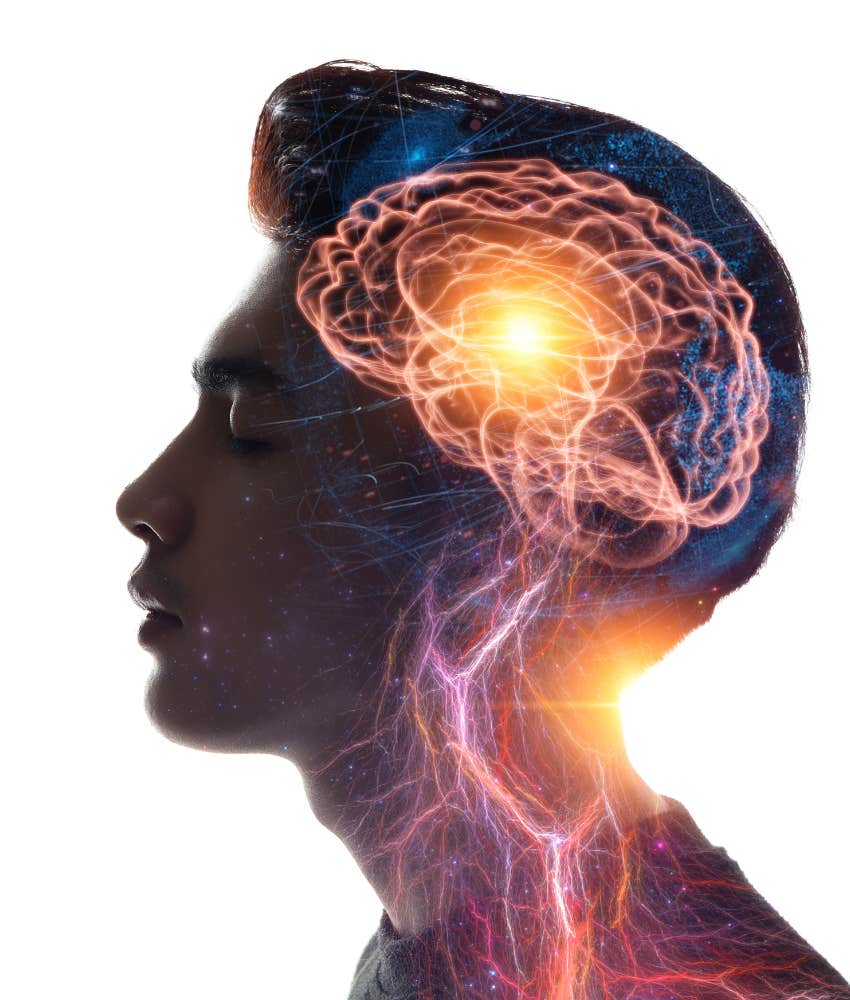Jamais Vu: The Opposite Of Déjà Vu, According To Scientists
 RollingCamera | Shutterstock
RollingCamera | Shutterstock You know that eerie feeling you get when something or someone seems super familiar. It could be a person you believe you've encountered but can't quite put your finger on where, or an experience you think you had before but can't recall exactly when and where.
We know that sensation as déjà vu. But did you know that there is another phenomenon that represents the exact opposite of that? It's called jamais vu, and it's just as strange as you'd imagine.
Jamais vu is the opposite of déjà vu, according to scientists.
With jamais vu, you come across something very familiar, but feel totally disconnected from it, as if you've never encountered it in your life. You might lose your comprehension of certain things you know like the back of your hand, or even fail to recognize people that should be familiar to you.
 Kues | Shutterstock
Kues | Shutterstock
Some equate it to a sensation of being trapped in a different dimension. You'll find it hard to interpret what is going on around you and might become confused, even believing you might be dreaming.
Like déjà vu, jamais vu, which translates from French as "never seen," is connected to the area of the brain that uses your memory to fact-check, but research suggests it's a much less common experience. You could be doing something that you are completely accustomed to, like driving home from the local grocery store, and suddenly the route seems unfamiliar. Researchers describe the phenomenon as very disorienting, almost like seeing the world with "new eyes."
Jamais vu could be even more unsettling than déjà vu.
It's not an easy concept to grasp, but to someone who has experienced jamais vu, it's unforgettable. In layman's terms, one study participant described, "While writing in my exams, I write a word correctly like 'appetite' but I keep looking at the word over and over again because I have second thoughts that it might be wrong."
Ig Nobel recipient Dr. Akira O’Connor explained to The Guardian that it's the repetition of the mundane that can bring about jamais vu in some people, and that's also why it's so unsettling. When the things you do without active thought suddenly become unfamiliar, it can feel a bit terrifying.
The scientific term for this is "satiation," when something is so familiar that it almost "overloads" the brain. Where déjà vu gives you a sensation of unplaced familiarity, jamais vu leaves you feeling unsure of your own abilities, and that's why it's so unsettling.
Some theories suggest that jamais vu is attributed to our connection to the quantum realm.
 sutadimages | Shutterstock
sutadimages | Shutterstock
As referenced in @the.4th.initiate's TikTok, our consciousness may not be limited to just our physical worlds. That translates to a spiritual connection to a different realm rather than simply an over-exposed brain, as more conventional science would argue.
Things that were previously familiar are now foreign to you and can elicit extreme confusion. In other words, jamais vu is a breakdown in the time and space continuum that disrupts the continuity of your consciousness and leaves you disassociated from what you already know.
Jamais vu can present like sudden memory loss or dementia.
Let's face it, that underlying feeling that you should know something, but that your brain is simply not connecting properly, is scary. You might think you are experiencing sudden memory loss or dementia, and that can be frightening.
Dr. Akira O’Connor's research into jamais vu even suggests a preliminary connection to Obsessive Compulsive Disorders, although he stresses the links are still in their infancy. Further examination into the phenomenon could prove important in mental health research and treatment.
But jamais vu is, in most cases, without underlying medical conditions, very temporary. Although off-putting, if it happens to you, know that this, too, shall pass.
NyRee Ausler is a writer from Seattle, Washington, and author of seven books. She covers lifestyle, entertainment, and news, as well as navigating the workplace and social issues.

